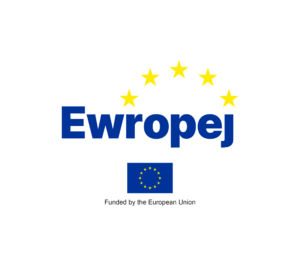MEPs Call For Further Investment In Digital Learning, Citing Inequalities Exposed By COVID-19

MEPs have called for the EU’s digital education policy to be reshaped according to the needs and gaps exposed by the effects of COVID-19 upon education systems and work going online.
The resolution, which was adopted on Thursday, calls upon member states to dedicate at least 10% of their recovery and resilience funds towards education – both in its recovery and to ensure that all are able to access education, whether it be physically or digitally.
Utilising the EU’s digital transition funds should thus be invested into bridging social and geographical gaps present in access to digital education for all, regardless of age bracket.
Romanian MEP, Victor Negrescu, the rapporteur and part of the Progressive Alliance of Socialists and Democrats highlighted that “access to education using digital means is a right”. Yet, Europe has not been ready for “this rapid shift to digital education”.
We call for an #European answer to the crisis faced by education. We need EU digital education policies. Our report defines quality digital education & provides solutions. 10% for education from #RRF. @EPCulture @TheProgressives @Europarl_EN @PES_PSE @EU_Commission @EUCouncil pic.twitter.com/FhSLCxtV5U
— Victor NEGRESCU (@negrescuvictor) March 26, 2021
“Millions of children in the EU did not have sufficient access to digital education and after a year of pandemic there’s still no solution for them,” Negrescu said.
“If a child cannot connect, [they’re] at risk of drop-out from the school. Unfortunately, we’re not prepared for the new wave of [the] pandemic which could close schools and training institutions once again.”
MEPs have stressed that the importance of digital transition in education has only risen in light of COVID-19 while substantial investment in this field was required to ensure that this transition is allowed to be both effective and easily accessible.
In Malta, we have seen these effects quite clearly. The transitions to online learning in schools due to COVID-19 restrictions have proved chaotic and, in many cases, ineffective for children to properly access and engage in education.
It stems to multiple levels, affecting people who cannot afford proper resources to study online or even strain existing networks that are being used for online learning at an unprecedented level.
Next generation or lost generation? Children, young people and the pandemic – what future for the digital natives?https://t.co/NH5UwfFG63@EPCulture @sabineverheyen @negrescuvictor pic.twitter.com/AWkHpT2PBX
— EP Research Service (@EP_ThinkTank) March 24, 2021
Yet, it is not only children who are detrimentally affected by this. MEPs have also criticised the absence of measures targeting lower-skilled adult learners and older people, highlighting the need for measures to be put into place to incentivise digital learning for adults.
This situation, they believe, should be worked with alongside national and local authorities to tackle these inequalities. Proper digital skill courses for teachers are also a major factor that MEPs believe is necessary.
National digital education plans should also focus on improving digital proficiency for persons with disabilities, persons from vulnerable groups and people living in remote or rural areas.
Finally, MEPs have also called for the European Commission and the Member States to create an online version of the “European Universities” initiative, which would essentially allow students across the EU to engage in multilingual, distance learning and online education programmes.
These programmes going online would allow students across all disciplines, languages and curriculums to help shape Europe’s future and gain quality, revolutionary education style – whilst being able to do even with distance learning.

This article is part of a content series called Ewropej. This is a multi-newsroom initiative part-funded by the European Parliament to bring the work of the EP closer to the citizens of Malta and keep them informed about matters that affect their daily lives. This article reflects only the author’s view. The European Parliament is not responsible for any use that may be made of the information it contains.
What do you think about the issue of distance learning? Let us know in the comments
